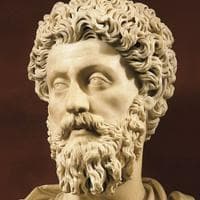Saladin, Ayyubid Sultan MBTI 성격 유형
인격
"Saladin, Ayyubid Sultan은 어떤 성격 유형입니까? Saladin, Ayyubid Sultan은 mbti의 INFJ 성격 유형입니다. enneagram의 1w9 - so/sp - 126, big 5의 SCOAI, socionics의 ESI입니다."
My own perspective: He is a highly principled, respectable figure, and a brilliant leader. Moved by the plight of others - he wept dearly/bitterly for the inhabitants of Jerusalem/Palestine when the Crusaders conquered Jerusalem and massacred the inhabitants there. He even said “How can I smile and how can food and water taste great to me when Al-Aqsa/Jerusalem is in the hands of the Crusaders?” (An indication of possibly strong Fe, shaken by the oppression experienced by people living far away in other places). However he was also tactical, and had the foresight/patience to gather resources and wait for the best moment to strike the enemy strategically (an indication of not inferior Ti/Te, and possibly Ni due to level of restraint and foresight). And when he reconquered Jerusalem with his army, he ensured that his army continued to show restraint compared to his Crusader counterparts, according to one source: (Instead of massacring the Christians in Jerusalem like what the Christians there had feared) “He ordered to clean the city with … rose water and he himself began washing the floor of the Masjid (Mosque) al-Aqsa with rose water. His soldiers followed him. For a week, Muslim soldiers were washing buildings in Jerusalem and the smell of rose was everywhere.” (His high level of restraint and constant adherence to ethical-moral principles shows that Fe or Fi is at least not inferior for him, so I am ruling out EXTJ though not implying that EXTJ cannot be principled). Despite being renowned for his military battles and conquests, he has said, “I warn you against shedding blood, indulging in it and making a habit of it, for blood never sleeps” and that “it is not custom for kings to kill other kings.” Could be Fi, but Fe as well. The ISTJ argument by Sultan Saladin is quite compelling as well, but given that he was so adversely/emotionally affected by the oppression of the inhabitants of Jerusalem before his conquest, I am inclined as of now to say he is INFJ.
전기
An-Nasir Salah ad-Din Yusuf ibn Ayyub, known as Salah ad-Din or Saladin (1137 – 4 March 1193), was the first sultan of Egypt and Syria and the founder of the Ayyubid dynasty. A Sunni Muslim of Kurdish ethnicity, Saladin led the Muslim military campaign against the Crusader states in the Levant. At the height of his power, his sultanate included Egypt, Syria, Upper Mesopotamia, the Hejaz, Yemen and other parts of North Africa. Under Saladin's command, the Ayyubid army defeated the Crusaders at the decisive Battle of Hattin in 1187, and thereafter wrested control of Palestine—including the city of Jerusalem—from the Crusaders, who had conquered the area 88 years earlier. Although the Crusader Kingdom of Jerusalemcontinued to exist until the late 13th century, its defeat at Hattin marked a turning point in its conflict with the Muslim powers of the region. Saladin died in Damascus in 1193, having given away much of his personal wealth to his subjects. Despite the Crusaders' slaughter when they originally conquered Jerusalem in 1099, Saladin granted amnesty and free passage to all common Catholicsand even to the defeated Christian army, as long as they were able to pay the aforementioned ransom (the Greek Orthodox Christians were treated even better, because they often opposed the western Crusaders). Notwithstanding the differences in beliefs, the Muslim Saladin was respected by Christian lords, Richard especially. Richard once praised Saladin as a great prince, saying that he was without doubt the greatest and most powerful leader in the Islamic world. Saladin eventually achieved a great reputation in Europe as a chivalrousknight, due to his fierce struggle against the crusaders and his generosity. In The Divine Comedy he is mentioned as one of the virtuous non-Christians in limbo.















